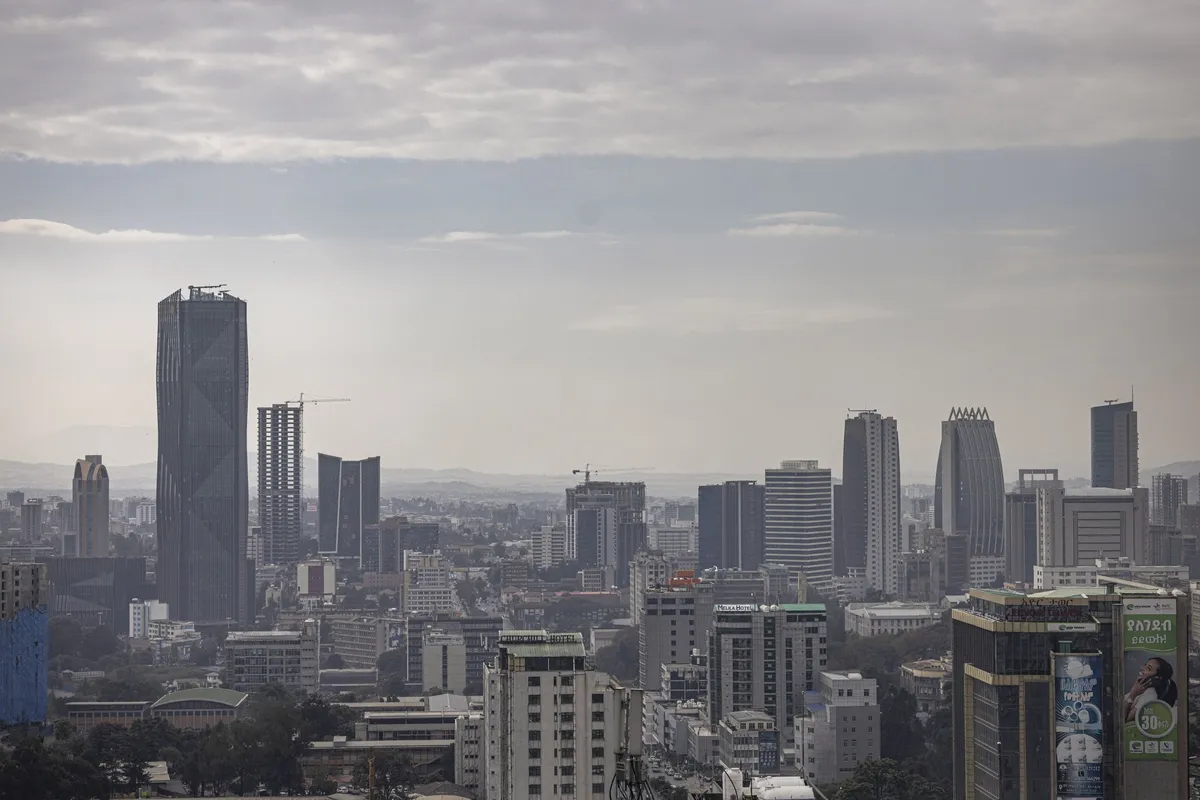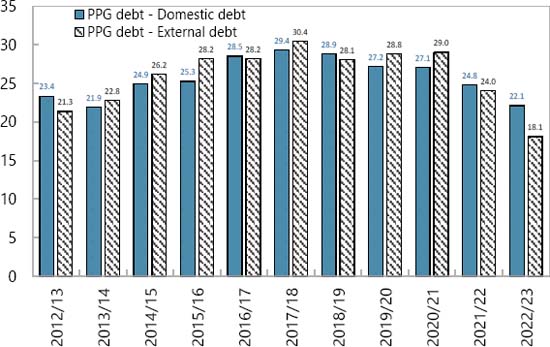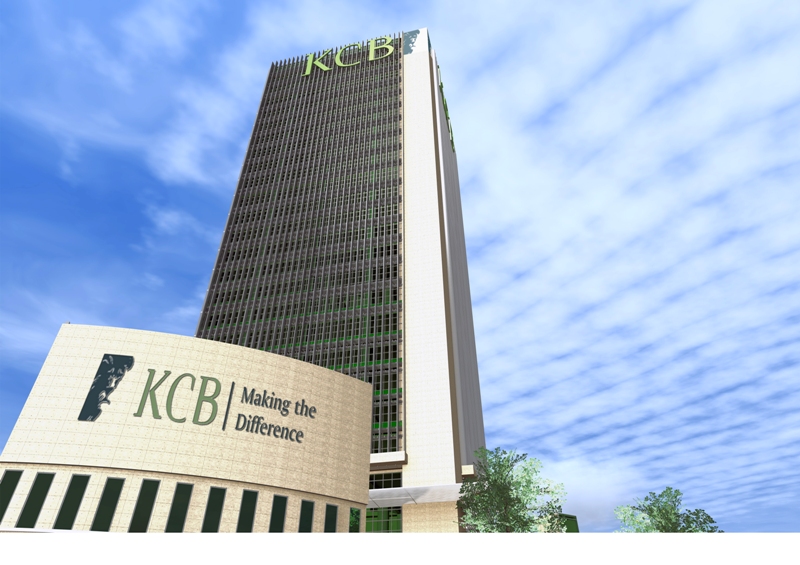Business & Money
Watchdog Probes Coca-Cola for Anti-Competitive Behavior in 19 African Countries
This investigation centers on the future of competition in Africa’s booming beverage market, valued at billions annually. With over 1.4 billion people and a young, urbanizing demographic, Africa is a crucial growth market for global firms like Coca-Cola. However, regulatory frameworks are tightening as governments and consumer protection agencies strive to establish a fair playing field for all businesses.

:Coca-Cola Faces Major Anti-Competitive Probe Across 19 African Countries: Regulatory Watchdogs Targeting Fair Competition, Beverage Market, Monopoly Concerns, and Business Practices
By Charles Wachira
The Coca-Cola Company, one of the world’s largest beverage manufacturers, is under investigation by a coalition of African competition watchdogs for allegedly engaging in anti-competitive practices across 19 African countries. This major probe comes amid growing concerns that the company has been using its dominant market position to stifle competition, limiting choices for consumers and creating barriers for smaller beverage firms trying to enter the market.
Why the Probe Was Initiated
The investigation was triggered in August 2024 following complaints from local competitors and regulatory authorities, alleging that Coca-Cola had been involved in activities that violate fair competition laws. The specific allegations include exclusive supply agreements with retailers, preferential pricing arrangements with distributors, and practices that prevent rival brands from gaining shelf space in key outlets.
The complaint gained traction when smaller beverage companies accused Coca-Cola of using its vast distribution network to monopolize the market, especially in countries where the regulatory framework is still developing. These smaller firms argue that Coca-Cola’s influence on the supply chain has marginalized their products, limiting consumer choice and hindering competition.
The probe is a joint effort initiated by the African Competition Network (ACN), an umbrella organization that brings together competition authorities from various African nations. The ACN was formed to ensure a unified approach to cross-border competition issues on the continent. According to sources, this investigation is one of the largest of its kind ever conducted in Africa.
Countries Involved
The 19 African nations involved in the investigation are spread across East, West, Central, and Southern Africa, indicating that Coca-Cola’s business practices have raised widespread concerns. These countries include:
- Kenya
- South Africa
- Nigeria
- Ghana
- Tanzania
- Uganda
- Ethiopia
- Rwanda
- Zambia
- Zimbabwe
- Botswana
- Namibia
- Mozambique
- Malawi
- Angola
- Ivory Coast
- Cameroon
- Senegal
- Democratic Republic of Congo (DRC)
The inclusion of some of Africa’s largest and most dynamic economies, such as South Africa, Kenya, Nigeria, and Ethiopia, underscores the significant stakes involved. Coca-Cola has a long history of dominance in these markets, often considered critical to its African operations due to their large populations and growing middle class.
What is at Stake
At the heart of this investigation is the future of competition in Africa’s rapidly growing beverage market, estimated to be worth billions of dollars annually. With more than 1.4 billion people across the continent and a young, urbanizing population, Africa is seen as a key growth market for global companies like Coca-Cola. However, the regulatory environment is also tightening as governments and consumer protection agencies work to create a level playing field for all businesses.
The stakes for Coca-Cola are high. If the company is found guilty of anti-competitive behavior, it could face significant fines, sanctions, and even restrictions on its operations in some of these countries. Additionally, Coca-Cola could be required to revise its distribution contracts and change its business model in key African markets, which may impact its profitability and market share.
There are also broader implications for the business community. This investigation signals to multinational corporations that African regulatory bodies are becoming more vigilant about enforcing competition laws, even for industry giants like Coca-Cola.
The Initiation of the Probe
The probe was officially launched by Kenya’s Competition Authority (CAK) in August 2024 after it raised concerns following complaints from local bottlers and distributors. CAK’s then acting Director-General, Adan Wario, emphasized the need for competition in the beverage sector, which he said is vital to ensuring consumer choice.
“Competition in the beverage market is essential to ensuring that consumers have access to a variety of choices at fair prices. We have observed practices that could potentially limit competition and harm both consumers and small businesses,” said Kariuki during a press briefing on August 18, 2024.
The concerns raised by Kenya’s competition body quickly gained attention from other regulatory agencies, leading to the formation of a broader coalition under the African Competition Network. The ACN’s chairperson, Thabo Maseko, who also heads South Africa’s Competition Commission, underscored the importance of this investigation:
“This investigation marks a milestone in African competition law enforcement. It highlights our collective commitment to creating an environment where businesses, regardless of their size, can compete fairly. No company should be allowed to use its size and influence to undermine competition, especially in markets as important as ours.”
Coca-Cola’s Response
In response to the investigation, Coca-Cola has denied any wrongdoing. In a statement, Patricia Obozuwa, Vice President for Public Affairs, Communications, and Sustainability at Coca-Cola Africa, stated:
“We are fully cooperating with the authorities and remain confident that our business practices comply with all local competition laws. Coca-Cola has a long history of supporting economic development in Africa, and we continue to prioritize fair competition and consumer choice in all our markets.”
Obozuwa also underscored Coca-Cola’s role in building a robust distribution network that benefits many small businesses across the continent. “We work closely with thousands of local suppliers, distributors, and retailers across Africa. Our relationships help drive economic growth and create jobs, and we have always upheld high ethical standards in all our operations.”
Next Steps and Potential Outcomes
The ACN has indicated that the investigation will be thorough and is expected to take several months. Officials have projected that the probe could be concluded by early 2025, depending on the complexity of the findings. The watchdog will conduct detailed market investigations, including interviews with retailers, distributors, and competitors of Coca-Cola in the affected countries.
If Coca-Cola is found guilty, penalties could range from hefty fines to orders to dissolve exclusive agreements. In some countries, Coca-Cola could face more drastic measures, such as restrictions on its ability to enter new distribution contracts or sell certain products.
The Growing Importance of Competition Law in Africa
This investigation into Coca-Cola’s practices reflects the increasing attention African countries are paying to competition law, particularly as foreign investment grows across the continent. Authorities are more focused on ensuring that multinational corporations do not exploit weak regulations or fragmented legal frameworks to maintain monopolistic control over key industries.
As Maseko pointed out during a press briefing, “Africa is no longer a region where companies can ignore local laws with impunity. Our economies are maturing, and so are our regulatory capabilities. This investigation will set an important precedent for how we handle competition issues in the future.”
Conclusion
The probe into Coca-Cola’s alleged anti-competitive behavior across 19 African nations marks a pivotal moment in the enforcement of competition laws on the continent. As regulatory authorities work together to ensure a level playing field, the outcome of this investigation, which is expected to conclude by early 2025, will have far-reaching implications, not only for Coca-Cola but also for how multinational corporations conduct business in Africa’s burgeoning markets.
Keywords: Coca-Cola, Anti-Competitive Probe, African Countries, Beverage Market, Monopoly Concerns
Business & Money
Ethiopia Attracts $53.5 Million in Q1 Investments, Creates 8,700 Jobs

: Ethiopia attracts $53.5M in Q1 investments, creating 8,700 jobs. Growth driven
by reforms, with a focus on service and manufacturing sectors.
The Addis Ababa Investment Commission (AAIC) announced a promising start to the
2023/24 fiscal year, with 612 investors registering a combined capital of Birr 2.93 billion
($53.5 million) in the first quarter.
This reflects a 13% growth compared to the same period last year, signalling sustained
investor confidence despite economic challenges.
Speaking at a press briefing on November 30, AAIC’s Director of Communication,
Meseret Woldemariam, credited the growth to policy reforms and enhanced investor
facilitation.
“Our efforts to streamline investment processes and resolve bottlenecks are yielding
results. We remain committed to ensuring investors thrive in Addis Ababa,” she said.
SECTORIAL CONTRIBUTIONS
The majority of the newly licensed investors are in the service and manufacturing
sectors. The service sector includes hotels, tourism, and IT ventures, while the manufacturing
investments span electrical products, steel, wood, and textiles.
These investments have generated 8,707 jobs, comprising 770 permanent and 490
temporary positions created by newly licensed entities.
The AAIC has also initiated field monitoring visits to ensure operational readiness. “Our
team works closely with new investors to address challenges promptly, enabling faster
project rollout,” Meseret added.
CHALLENGES AND REFORMS
Investors continue to face hurdles such as foreign currency shortages and workspace
availability. However, the commission highlighted progress due to macroeconomic reforms,
particularly improving foreign currency access.
“We are actively collaborating with the Mayor’s office to address workspace issues
through professional support in rental solutions and operational guidance,” Meseret
explained.
Recent reforms in the National Bank of Ethiopia’s foreign exchange policy have also
been pivotal. In October, the central bank announced a 30% increase in forex allocation to priority sectors, a move welcomed by stakeholders.
EXPANSION PLANS AND PROJECTIONS
The AAIC aims to capitalise on the momentum, targeting Birr 15 billion ($274 million) in
investments by the end of the fiscal year. A new digital investment portal, launched in November, promises to reduce registration times by 40% and improve transparency.
“We are confident these initiatives will not only attract more investors but also deepen
the trust of existing ones,” Meseret concluded.
INVESTOR SENTIMENT
Prominent business leader Ahmed Yusuf, who recently launched a $3 million IT hub in
Addis Ababa, praised the commission’s efforts.
“The improvements in investor services and forex allocation are encouraging. We hope
to see more streamlined processes for licensing and operations,” he remarked.
As Ethiopia seeks to position itself as a regional investment hub, sustained efforts in
addressing investor concerns and enhancing infrastructure will be critical.
Business & Money
Ethiopia Eyes December Debt Restructuring After IMF Review

: Ethiopia’s December IMF review may unlock long-awaited debt restructuring,
crucial for economic reforms and stalled projects like the Koysha Hydroelectric
Dam.
Ethiopia’s much-anticipated debt restructuring prospects could gain clarity this
December, as the country awaits the second review under its four-year International
Monetary Fund (IMF) program.
The Extended Credit Facility (ECF), launched in August 2023, remains central to
Ethiopia’s economic reform and debt relief efforts.
Progress Toward Debt Treatment
Last week, Ethiopian authorities reached a staff-level agreement with the IMF tied to the
second review. A comprehensive report on this review is set for release in December, a month many stakeholders, including the National Bank of Ethiopia (NBE), view as pivotal for
advancing debt treatment plans.
“Debt restructuring stands at the centre of our reform agenda. With the report’s release,
we expect rescheduling talks to gain momentum,” said Habtamu Workneh, Director of
External Economic Analysis & International Relations at the NBE.
He added that discussions are focusing primarily on extending maturity dates for Ethiopia’s debts.
IMF Support and Engagements with Creditors
The IMF has provided Ethiopia with USD 2.5 billion under its current fiscal program,
offering critical support to the country’s macroeconomic stabilisation efforts.
In parallel, Ethiopian authorities have engaged with Eurobond holders and the Official
Creditors Committee (OCC).
A debt restructuring proposal was submitted to Eurobond holders in July 2024, following
key discussions in December 2023 and May 2024.
Additionally, a global investor update held on October 1, 2024, highlighted the nation’s
ongoing economic challenges and progress in creditor negotiations.
Shifting Debt Landscape
The government has reported improvements in its debt profile. Planning and Development Minister Fitsum Assefa (PhD) announced that Ethiopia had ceased relying on commercial loans and direct borrowing from the central bank.
She noted a significant drop in the external debt-to-GDP ratio to 13.7 per cent, though
the IMF’s Debt Sustainability Analysis, published in July 2024, pegged the ratio at 18
per cent as of June 2023.
External debt accounts for 45 per cent of Ethiopia’s total public and publicly guaranteed
debt, the report stated.
Financing Challenges Persist
Despite these reforms, Ethiopia’s financing challenges remain acute.
The government is seeking nearly USD 1 billion to complete the Koysha Hydroelectric
Dam project, which has stalled at two-thirds completion due to funding shortfalls.
The project is a critical component of Ethiopia’s development strategy, but its delays
underscore the broader fiscal pressures the country faces.
Expert Views on Economic Outlook
While Ethiopian officials are optimistic about the December review as a turning point,
analysts caution that real progress hinges on creditor consensus and the government’s
ability to implement reforms.
Critics have also raised concerns about inflated GDP growth figures, which they argue
may distort Ethiopia’s true debt sustainability.
Looking Ahead
The IMF review, coupled with Ethiopia’s active engagement with creditors, could mark a
a significant step forward in its quest for debt relief.
December will likely be a defining month for the country’s economic future, with broader
implications for its ability to attract investment and complete critical infrastructure
projects.
Business & Money
KCB Group Surpasses Equity with US$ 342.31 Million Nine-Month Profit

: KCB Group reports Sh44.5B ( US$ 342.31) nine-month profit, outpacing
Equity Bank. Learn about its 49% growth, challenges, and stock performance this
year.
KCB Group Plc has outperformed Equity Bank to cement its position as Kenya’s leading
lender, posting a net profit of Sh44.5 billion for the nine months ending September
This represents a 49% year-on-year growth, surpassing Equity Bank’s Sh37.5
billion profit during the same period.
Profit Growth Driven by Core Business Performance
The remarkable profit growth was fueled by higher earnings from both interest and non-
interest income streams. KCB’s diverse revenue base has been pivotal in maintaining
its dominance in the competitive banking sector.
Non-Performing Loans a Key Concern
Despite the impressive profit growth, KCB’s non-performing loan (NPL) ratio rose to
18.5%, compared to 16.5% last year. This increase highlights persistent challenges in
managing credit risk, with Chief Financial Officer Lawrence Kimathi acknowledging it as
a “pain point” for the bank.
KCB Stock Outshines Peers on NSE
KCB’s strong financial performance has translated into exceptional stock market results.
The bank’s stock has risen 78.8% year-to-date, making it the best-performing banking
stock on the Nairobi Securities Exchange (NSE).
Plans to Sell National Bank of Kenya
Earlier this year, KCB announced plans to sell its struggling subsidiary, National Bank of
Kenya (NBK), to Nigeria’s Access Bank. While Nigerian regulators have approved the
deal, it is still awaiting clearance from Kenya’s Central Bank. The sale aims to
streamline KCB’s operations and address losses at NBK.
CEO Paul Russo Optimistic About Year-End Performance
“The journey has not been without its hurdles, but our ability to walk alongside our
customers has driven our success,” said KCB CEO Paul Russo. He expressed
confidence in closing the year on a high note, leveraging improving economic conditions
across the region.
Key Figures at a Glance
● Net Profit: Sh44.5 billion (+49%)
● Non-Performing Loan Ratio: 18.5% (up from 16.5%)
● Stock Performance: +78.8% year-to-date
KCB’s strong performance underscores its resilience in navigating challenges and its
commitment to sustaining growth in Kenya’s banking sector.
-

 Business & Money9 months ago
Business & Money9 months agoEquity Group Announces Kshs 15.1 Billion Dividend Amid Strong Performance
-

 Politics4 months ago
Politics4 months agoFred Okengo Matiang’i vs. President William Ruto: A 2027 Election Showdown
-

 Politics3 months ago
Politics3 months agoIchung’wah Faces Mt. Kenya Backlash Over Gachagua Impeachment Support
-

 Politics6 months ago
Politics6 months agoPresident Ruto’s Bold Cabinet Dismissal Sparks Hope for Change
-

 Politics6 months ago
Politics6 months agoKenya Grapples with Investor Confidence Crisis Amid Tax Protest Fallout
-

 Politics6 months ago
Politics6 months agoPresident Ruto’s Lavish Spending Amid Kenya’s Economic Struggles Sparks Outrage
-

 Business & Money2 months ago
Business & Money2 months agoMeet Kariuki Ngari: Standard Chartered Bank’s new CEO of Africa. What’s Next?
-

 Politics5 months ago
Politics5 months agoJohn Mbadi Takes Over Kenya’s Treasury: Challenges Ahead





